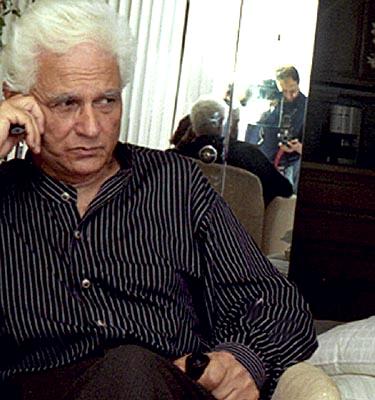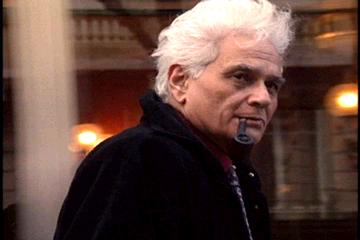Derrida


Derrida is less a documentary and more an extended conversation with its title subject, Jacques Derrida, father of deconstructionism. Deconstructionism is basically a branch of philosophy where people don't take all assumptions as true. It has them ask questions about basic tenets. Or, to put it another way (somewhat jokingly), it is the act of being contrarian. A movie about Derrida is not an easy thing to make, and co-directors Kirby Dick (Chain Camera, Sick) and Amy Ziering Kofman did the best possible thing by having Derrida speak in his own words. Dick and Kofman spent two years intermittently interviewing Derrida and recording his words.
Derrida is a spry, insanely smart man, who is sometimes uncomfortable in front of the camera. He often looks directly at the camera and provides his comments on it, and how it bothers him. The movie either films Derrida at a variety of speaking engagements, either giving speeches or answering questions, or has him fielding questions from Kofman. The latter leads to some lively intellectual sparring between Derrida and Kofman, however it seems that the main thing one can gleam from Derrida is that he doesn't feel like answering questions. In true deconstructionist fashion, he often answers Kofman's questions with additional questions, or tells her why he will not give her answers. It is both fun and frustrating at the same time, since Derrida playfully avoids saying much of anything, and toys with Kofman.
The filmmakers are clearly in awe of their subject (with good reason), so Derrida is just a big gushy love letter. While this does make the film a personal lecture from a great mind, one never figures out how deconstruction came to be. They also don't delve much into Derrida's background aside from some brief comments. Instead, they ask open-ended questions and get long answers from Derrida. The one huge problem with this is that his words are so dense, that hearing it once is difficult to understand. Philosophy, in this case, may work better on the written page, where one can read it, ponder it, and read it again and again until it makes sense. Derrida is so bright and thinks so quickly that one wishes he could slow down enough to process what he said. Kofman uses voice-overs to quote from a variety of his books, but the effect is the same.